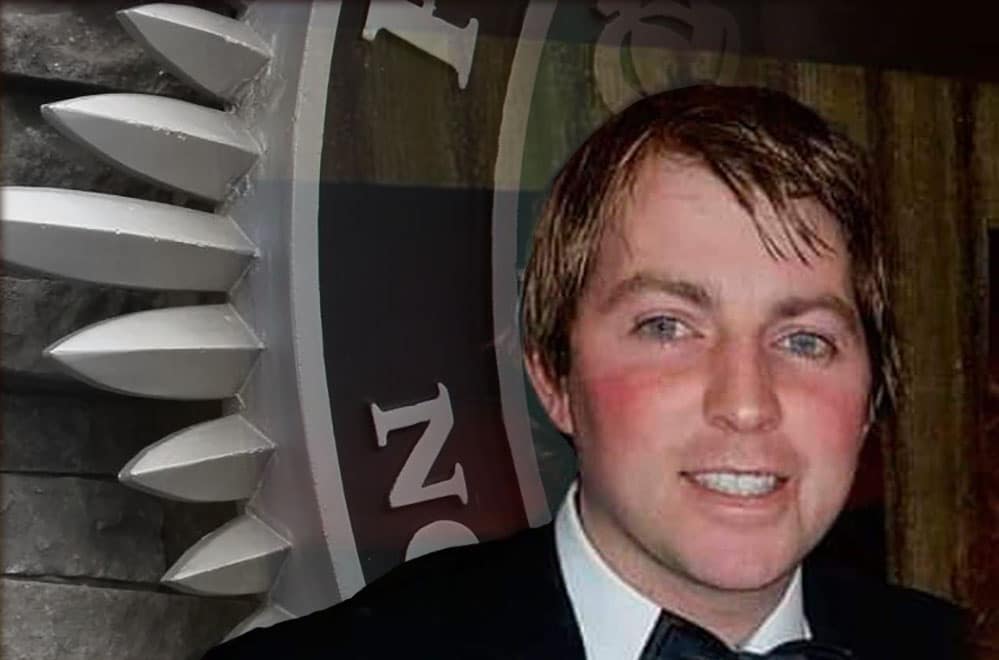
Despite stating questions would be answered on Jonathan Creswell’s disappearing previous violence convictions from his criminal record, the PSNI continue to stonewall, although have partially addressed a separate matter around information provided to the Police Ombudsman, albeit not to the extent of actually clarifying concerns.
Creswell’s trial for murdering Armagh showjumper Katie Simpson ended after just 24 hours when he took his own life.
He was initially lauded a hero for valiantly rescuing and attempting to save her life, claiming she had attempted to hang herself on August 3, 2020.
While his account was largely believed, not everyone was convinced and against huge pressure to accept the narrative embarked on a tortuous battle for the truth.
Creswell was finally charged with Katie’s murder and four women would later be reported to the Public Prosecution Service for their roles in the cover-up.
Three would face court, while the fourth mysteriously vanished from the case and all efforts to obtain justification for this have been stonewalled, another example of disappearing aspects in this controversy-ridden case.
From the day after Katie was admitted to hospital and throughout the week she fought her final battle for life, serious concerns around Creswell’s behaviour were being raised with PSNI, all of which were dismissed.
Critical information provided apparently didn’t match his criminal record, something the Chief Constable has assured cannot happen again.
What he couldn’t say was HOW it happened.
Was it removed and is this a regular occurrence or a one-off specific to Creswell?
In August, the PSNI were asked if enquiries are underway to establish how convictions could vanish and if there are any other similarly affected cases, given the obvious implications.
A spokesperson replied: “The Ombudsman investigation and report addresses the specific issues referred to. The findings will help to determine how such a situation could have occurred. It is not possible to elaborate further at this time.”
So with the investigation actually completed in May 2023, but the content only disclosed in November, albeit partially, the PSNI were asked the question again.
They reverted to their previous pre-report reply of not commenting on specific details while legal proceedings are ongoing.
The PSNI were directed to their answer that matters would be addressed once the report details were known, combined with the extreme public concern around safeguarding.
A spokesperson replied: “We aren’t in a position to comment further.”
With the door slammed shut, enquiries turned to an inaccurate section within the Ombudsman report which found Creswell was convicted for assaulting his former partner in 2009, but the Public Protection Arrangements Northern Ireland (PPANI) came into effect in April 2010, meaning no red flags against Creswell on the PSNI system.
These timings are incorrect as Creswell was charged in 2009 but convicted in September 2010 – five months after PPANI arrangements came into effect.
So far neither PSNI nor the Ombudsman want to address how misleading detail was supplied, considered and permitted to reach the report.
The PSNI were asked how this occurred and what remedial action has been taken with the Ombudsman.
A spokesperson advised: “From April 2010 persons convicted of violence in domestic circumstances or with a previous conviction were eligible for inclusion/referral into PPANI.”
In terms of Creswell: “No referral into PPANI was made by any agency.”
Instead, the PSNI contended that as Creswell’s convictions occurred shortly after domestic offences became eligible for PPANI, “there may have been a lack of clarity regarding criteria. Since then, all agencies have had training and operational guidance, ensuring they have a clear understanding of PPANI eligibility criteria/referral processes.”
While this loosely, if unsatisfactorily answered part of the enquiry, it failed to state if action is underway to remedy the inaccuracy with the Ombudsman.
Pressed on this the PSNI had “nothing further to add”.
Meanwhile, when asked what was being done around this error the Ombudsman felt it, “inappropriate to comment publicly on the content of private correspondence”.






